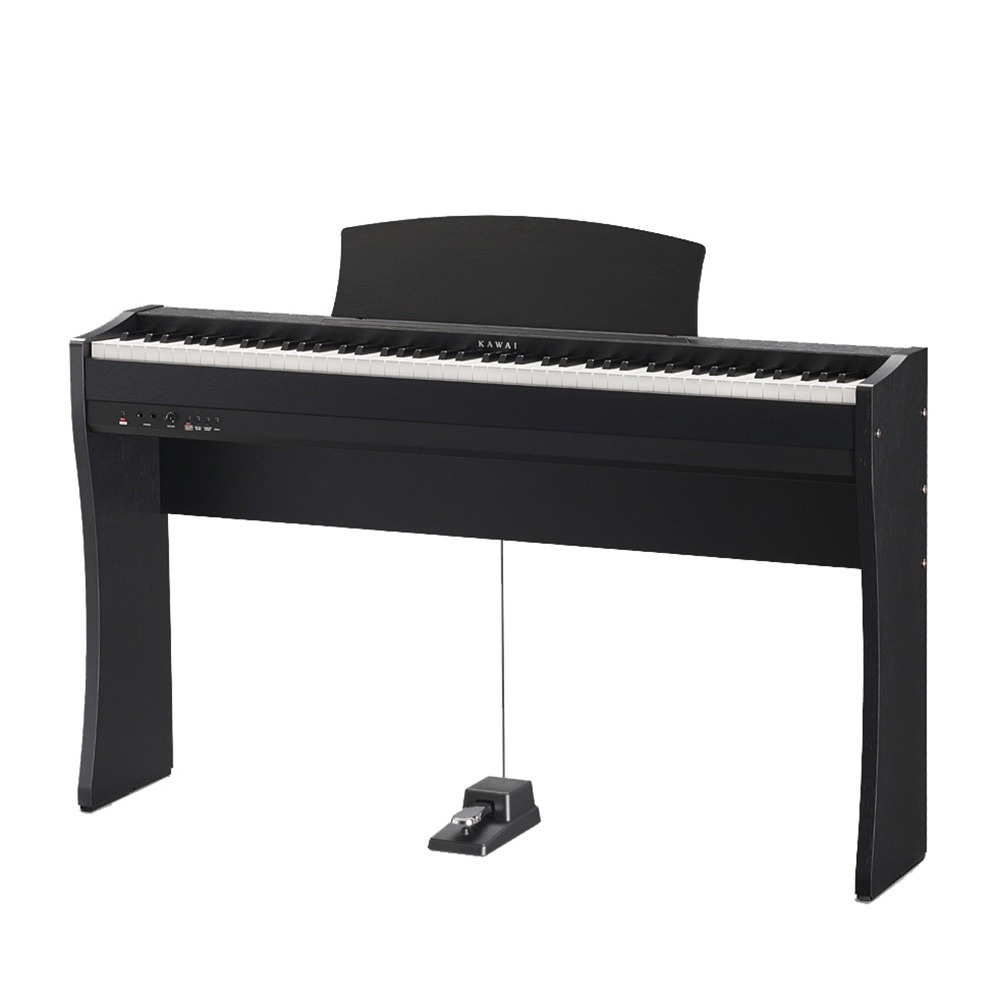1. Introduction
When it comes to choosing a piano, there are two main options: acoustic and digital. Both have their own unique advantages and disadvantages, so it’s important to consider the differences between them before making a decision. In this article, we will explore the differences between acoustic and digital pianos, including sound quality, price, portability, maintenance, and more. By the end of this article, you will have a better understanding of which type of piano is best for you.
2. What is an Acoustic Piano?
An acoustic piano is a traditional instrument that has been around for centuries. It consists of strings that are struck by hammers when the keys are pressed. The strings vibrate to produce sound waves that travel through the air and create music. Acoustic pianos are typically larger than digital pianos and can range in size from small upright models to large grand pianos that measure up to nine feet long. They require regular tuning and maintenance by a professional technician.
3. What is a Digital Piano?
A digital piano is an electronic instrument that produces sound digitally instead of using strings and hammers like an acoustic piano. It uses samples of real acoustic instruments to generate sound waves which are then amplified through speakers or headphones. Digital pianos are typically smaller than acoustic pianos and can be powered either by batteries or mains electricity. They also require less maintenance than acoustic pianos as they don’t need to be tuned regularly.
4. Sound Quality of Acoustic vs Digital Piano
The sound quality of an acoustic piano is superior to that of a digital piano due to its use of strings and hammers to create sound waves in the air. Acoustic pianos also tend to have a richer tone with more depth and resonance than digital pianos which lack the same level of realism in their sounds. On the other hand, digital pianos offer more versatility when it comes to sound as they can be programmed with different voices or sounds such as organ or strings in addition to the traditional piano sound.
5. Price Comparison of Acoustic vs Digital Piano
The cost of an acoustic piano varies depending on size, brand, age, and condition but can range anywhere from $1,000 – $50,000 or more for top-of-the-line models while digital pianos typically cost between $500 – $5,000 depending on features and quality. Generally speaking, digital pianos offer more value for money as they tend to be cheaper than their acoustic counterparts while still providing excellent sound quality and versatility at a fraction of the cost.
6. Portability of Acoustic vs Digital Piano
Acoustic pianos are generally much heavier than digital pianos due to their size and construction materials so they are not very portable unless you hire professional movers for assistance. On the other hand, digital pianos are much lighter and easier to move around so they can be transported from one place to another without too much difficulty if necessary.
7. Maintenance of Acoustic vs Digital Piano
Acoustic pianos require regular tuning by a professional technician in order to maintain their sound quality while digital pianos do not need any tuning at all as they generate sound digitally instead of using strings and hammers like an acoustic piano does. Digital pianos also require less maintenance overall as they don’t need any tuning or repairs like an acoustic piano might need over time due to wear and tear from use or environmental factors such as humidity or temperature changes in the room where it is located.
8 . Pros & Cons of Acoustic and Digital Pianos
The biggest advantage of an acoustic piano is its superior sound quality while the main advantage of a digital piano is its portability and lower cost compared to an acoustic model . However , there are some drawbacks associated with both types . For example , acoustic pianos require regular tuning by a professional technician while digital ones may lack some realism in their sounds due to their use of samples rather than actual strings . Additionally , both types may suffer from poor action (key responsiveness ) depending on their age , brand , condition , etc .
< h 2 > 9 . Who Should Buy an Acoustic or Digital Piano ? < / h 2 >
The type of piano you should buy depends largely on your budget , space constraints , desired level of realism in your playing experience , portability needs , etc . If you have limited space but still want great sound quality then an upright or grand acoustic piano would be ideal . If you don’t have enough room for a full-sized instrument but still want good sound then a digital piano might be your best bet . Ultimately , it’s up to you decide which type best suits your needs .
< h 2 > 10 . Conclusion < / h 2 >
In conclusion , there are many differences between acoustic and digital pianos that must be taken into consideration when deciding which one is right for you . While both types offer great sound quality , portability , price point , etc . they each have their own advantages and disadvantages that must be weighed carefully before making a purchase decision .
< h 2 > 11 . Sources < / h 2 >
1 ) https :// www . sweetwater . com / c11–acoustic -vs -digital -piano /
2 ) https :// www . musiciansfriend . com / buying – guides / how -to -choose -a -piano

